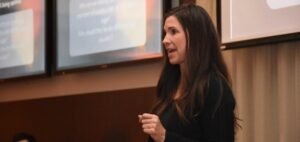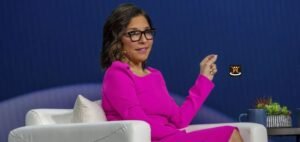Prime Highlights:
- Twenty-eight women leaders from four counties in Liberia joined the first-ever Regional Women Democracy School to strengthen leadership and democratic skills.
- The training aims to empower women to bring positive change in their communities and increase participation in governance.
Key Facts:
- The program is part of the UNDP Liberia Electoral Support Project (LESP), funded by the European Union, Irish Aid, and the Swedish Embassy.
- Participants include women from political groups, women-led businesses, trade unions, and community organizations, with expert-led sessions on political engagement and constitutional democracy.
Key Background:
Twenty-eight dynamic women leaders from Sinoe, Rivercess, Grand Bassa, and Margibi Counties gathered in Buchanan for the inaugural Regional Women Democracy School, a four-day training program organized by the Netherlands Institute for Multiparty Democracy (NIMD), in collaboration with UN Women and UNDP. The program ran from 16–19 September and aims to strengthen women’s democratic knowledge, leadership abilities, and capacity to drive positive change in their communities.
This training is run under the UNDP Liberia Electoral Support Project (LESP) and is funded by the European Union, Ireland, and the Swedish Embassy. The participants are women from political groups, businesses run by women, and community groups. By bringing together women from different backgrounds, the training encourages open discussion, trust, and learning from each other.
Grand Bassa County Superintendent Karyou Johnson urged participants to make the most of the opportunity. He encouraged the participants to use what they learn from the training, saying they are being prepared to bring positive change and that the country’s growth depends on their leadership.
Cllr. Darren Domah, a Program Officer at NIMD, highlighted that participants need to use what they learn to benefit their communities. The training included sessions led by experts, such as Ms. Floortje Klijn on various ways to get involved in politics, and Counselor George Sagbe on constitutional democracy, including topics like government structure, human rights, rule of law, and local leadership.
The training comes from a nationwide survey that involved 160 women from different parts of Liberia. The consultation showed that women face problems like limited healthcare, bad rural roads, fewer market opportunities, little support for small farms, and fewer chances for trade and business.
The Regional Women Democracy School gives women practical skills and a chance to connect with each other. The program aims to create stronger local leaders, encourage fair democracy, and get more women involved in Liberia’s governance and development.
The LESP project keeps helping national institutions and programs that support open and fair governance. It is operated with UN Women and NIMD as its partners, with the sponsorship of the European Union, Ireland, and Sweden.




